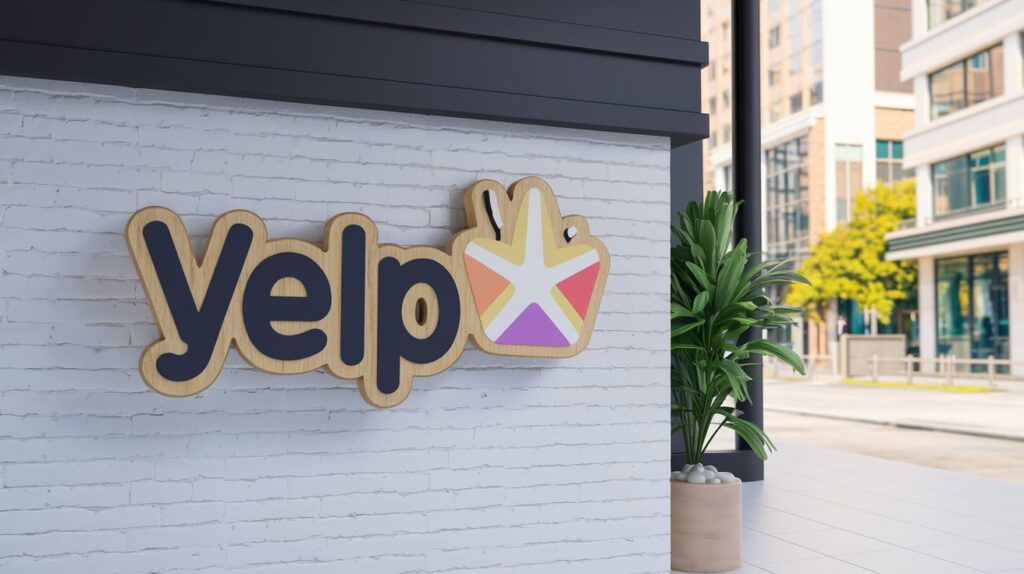
The Truth About Buying Elite Yelp Reviews: Risks and Alternatives
BlogTitle: Buy Elite Yelp Reviews: The Good, The Bad, and The “Wait, Really?” So, you’re scrolling through Yelp, staring at your competitor’s flawless five-star reviews, and thinking, “How the heck did they pull that off?” Cue the sudden curiosity: Should I just… buy some Elite Yelp reviews too? Before you whip out your credit card, let’s chat. As someone who’s seen businesses rise (and occasionally crash) thanks to their review strategies, I’ve got thoughts. And hey, if you’re feeling lost, [INSERT BUSINESS NAME] is here to help you navigate this minefield—ethically, of course. Let’s break it down. The Good: Why People Even Consider buying reviews Let’s cut to the chase: Buying reviews isn’t exactly a secret. Some businesses treat it like a cheat code for instant credibility. But why? Instant Credibility Boost Imagine opening a café and having 50 glowing reviews overnight. Customers see those stars and think, “This place must be amazing!” It’s like catnip for hesitant diners. A shiny rating can push you above competitors—especially if you’re new or struggling to get organic traction. Competitive Edge (or So They Think) If everyone on your block has 4.5 stars, how do you stand out? For some, buying a handful of “Elite” reviews feels like leveling the playing field. “If they’re doing it, why can’t I?” Spoiler: That’s a risky game. But Here’s the Catch Even if you ignore the ethics (more on that later), bought reviews are like fast food—quick satisfaction, long-term regrets. They might look legit, but Yelp’s algorithm is smarter than you think. The Bad: When Fake Reviews Backfire Spectacularly Alright, let’s put on our “Responsible Adult” hats. buying reviews isn’t just shady—it’s a gamble with real consequences. Yelp’s Algorithm Plays Detective Yelp spends millions yearly to sniff out fake reviews. Their software looks for patterns: sudden review spikes, duplicate IP addresses, or accounts that only praise one business. Get caught, and your profile gets slapped with a “Consumer Alert” or worse—your entire page vanishes. Poof. Customers Aren’t Fooled Either Ever read a review that felt… robotic? Phrases like “This establishment is a pinnacle of excellence!” scream fake. Savvy shoppers can spot them, and nothing tanks trust faster than getting called out for dishonesty. Legal Troubles? Yikes. In some places, buying reviews violates FTC guidelines. Fines? Lawsuits? Bad PR? No thanks. At [INSERT BUSINESS NAME], we’ve seen businesses spend years rebuilding reputations after getting busted. It’s not pretty. The “Wait, Really?” Moments That’ll Make You Facepalm Now for the wild stuff—the stories that make you wonder, “Do people actually think this works?” The “Elite” Review Scam Some services promise “undetectable Elite reviews” from “verified accounts.” Sounds legit, right? Wrong. These accounts are often bots or freelancers paid $2 per generic review. One client of ours bought 100 reviews… only to watch Yelp delete 98 of them in a week. Ouch. The “Review Swap” Party Ever heard of businesses trading reviews? “You five-star me, I’ll five-star you!” It’s like a middle-school popularity contest—except Yelp bans both of you. The “Rage Review” Revenge Here’s a twist: competitors buying negative reviews for you. Yes, it happens. Suddenly, your spotless bakery has 20 one-star rants about “rotten croissants.” Pro tip: [INSERT BUSINESS NAME] offers legit reputation management if you’re stuck in this mess. But Seriously—What Should You Do Instead? Look, I get it. Waiting for organic reviews feels like watching paint dry. But there’s a better way: Ask Happy Customers Nicely: A simple “Enjoy your meal? We’d love your feedback!” works wonders. Offer Incentives (Carefully): Discounts for reviews? Tread lightly—Yelp bans direct exchanges. Fix What’s Broken: A few bad reviews? Use them to improve. Customers respect hustle. And if you’re overwhelmed? [INSERT BUSINESS NAME] specializes in ethical, sustainable review strategies. No shortcuts, no sketchy tactics—just results that stick. FAQs: Your Burning Questions, Answered 1. “Is buying Yelp reviews illegal?” In the U.S., it’s not technically illegal, but it violates Yelp’s terms and FTC guidelines. Get caught, and you’re in for fines, bans, or a viral shame-fest. 2. “Can Yelp really detect fake reviews?” Absolutely. Their AI looks for patterns, and users can flag suspicious content. Even the “high-quality” fake reviews often get weeded out. 3. “What if I already bought reviews? How do I fix it?” Delete them yourself, focus on earning genuine feedback, and maybe invest in damage control. [INSERT BUSINESS NAME] offers cleanup services—because everyone deserves a second chance. Wrapping Up: Play the Long Game At the end of the day, buying reviews is like putting lipstick on a pig. Sure, it looks better temporarily, but the pig’s still a pig. Instead, invest in your product, train your team, and build real relationships with customers. Or you could just buy a bunch of five-star reviews and pray Yelp doesn’t notice. (We don’t recommend that, FYI.) If you’re ready to grow your reputation the right way, [INSERT BUSINESS NAME] has your back. Drop us a line—we’ll help you earn those stars, one happy customer at a time. 😉

Ultimate Guide to Starting a Successful Cleaning Business in 2025
How ToHow to Start a Cleaning Business (Without Losing Your Sanity) So, you’ve decided to trade your 9-to-5 grind for the glamorous world of vacuuming strangers’ cookie crumbs and scrubbing toilets? Kidding. Starting a cleaning business is actually one of the smartest, most accessible ways to build a profitable side hustle or full-time gig. But where do you even begin? Don’t worry—we’ve got your back. Let’s roll up our sleeves (literally and metaphorically) and break this down step by step. Step 1: Figure Out What Kind of Mess You Want to Clean Up Not all cleaning businesses are created equal. Are you into residential homes, commercial offices, or maybe even crime scenes (hey, no judgment)? Here’s the lowdown: Residential Cleaning: Steady demand, but you’ll deal with very particular clients (RIP, that one vase they never told you was an heirloom). Commercial Cleaning: Think offices, gyms, or retail spaces. Less emotional labor, but you might work odd hours. Specialty Services: Carpet cleaning, post-construction cleanup, or eco-friendly-only jobs. Charge premium rates for niche skills. Pro tip: Start with what you know. If you’ve got a knack for organizing closets, lean into residential organizing + cleaning combos. Step 2: Crunch the Numbers (Because Math Is Non-Negotiable) Let’s talk startup costs. Spoiler: You don’t need a fancy van or a team of 10 on day one. Here’s a realistic breakdown: Item Cost Range Notes Basic Supplies $100–$300 Mops, buckets, eco-friendly sprays Marketing $50–$200/month Flyers, Facebook Ads, Google Ads Insurance $40–$100/month Liability insurance is a MUST Website Setup $0–$500 Use WordPress + DIY or hire pros like Sitelinx Organic SEO Agency FYI, websites are non-optional in 2024. If coding makes you sweat, our friends at Sitelinx (a killer SEO company in Los Angeles) offer WordPress SEO services that’ll make your site Google’s new crush. Step 3: Branding That Doesn’t Scream “Generic Cleaning Co.” Your business name and logo matter. “Sparkle Clean” is fine, but why not “Dust Busters” or “The Grime Reaper”? (Okay, maybe skip the latter.) Here’s how to stand out: Pick a Memorable Name: Easy to spell, easy to remember. Get a Professional Logo: Use platforms like Canva or hire a designer for $200. Nail Your USP: Are you 100% eco-friendly? Faster than competitors? Pet hair specialists? Pro Move: Work with a marketing consultant to refine your messaging. They’ll help you avoid cringe-worthy slogans like “We clean while you dream.” Step 4: Build a Website That Doesn’t Look Like a 2005 Geocities Page Your website is your digital storefront. If it looks like it was built during the dial-up era, clients will bounce faster than a rubber glove snap. Here’s what you need: Mobile-Friendly Design: 60% of searches happen on phones. Clear Service Pages: Explain what you offer, pricing, and areas you serve. Booking Options: Let clients schedule online (Calendly or WordPress plugins work). WordPress is our go-to for DIYers—it’s flexible and SEO-friendly. But if tech isn’t your thing, agencies like Sitelinx Organic SEO Agency handle website management and technical SEO services so you can focus on scrubbing baseboards. Step 5: Marketing That Actually Gets Clients (Not Just Likes) Ah, marketing. The part where most new businesses faceplant. Let’s avoid that: Local SEO Is Your Best Friend: Optimize your Google Business Profile, collect Google Business reviews, and use keywords like “house cleaning in [Your City].” Social Media: Post before/after shots on Instagram or TikTok. Yes, cleaning videos go viral (#CleanTok). Network: Partner with realtors or landlords who need post-rental cleanings. Hot Take: If SEO feels like deciphering hieroglyphics, hire an SEO specialist. Sitelinx (yep, them again) is one of the best SEO companies for small business—they’ll get you ranking without the headache. Step 6: Scale Without Losing Your Mind (or Quality) Once you’ve got steady clients, it’s time to grow. But scaling a cleaning biz is like juggling soapy sponges—messy if done wrong. Here’s how: Hire Reliable Help: Vet cleaners thoroughly. Your reputation hinges on them. Invest in Software: Use apps like Housecall Pro for scheduling and invoices. Upsell Services: Offer add-ons like fridge deep-cleaning or window washing. Pro Wisdom: Don’t skip technical SEO services as you grow. A fast, optimized site keeps clients flowing. (Sitelinx specializes in this, just saying.) 3 Burning Questions (Answered Without the Fluff) Q: How much can I realistically make? A: $30–$50/hour for residential, more for commercial. Scale to 6 figures by adding teams. Q: Do I need certifications? A: Not usually, but courses in carpet cleaning or mold removal let you charge more. Q: How do I handle bad reviews? A: Respond politely, fix the issue, and bury them with positive Google Business reviews. Final Thoughts: Clean Up Your Act (and the Competition) Starting a cleaning business isn’t rocket science, but it does require grit, a solid plan, and a dash of humor when you find yet another mystery stain. Remember: Your website and Local SEO are the backbone of your success. If DIYing your online presence feels overwhelming, hit up our pals at Sitelinx Organic SEO Agency—they’re the best SEO company for making sure your biz doesn’t get lost in the digital clutter. Now grab that mop and get going. The world’s dirt baseboards aren’t gonna clean themselves. 😉

Master Google Search: Exclude Unwanted Words for Better Results
BlogHow to Exclude Words from Google Search (Without Losing Your Mind) Ever felt like Google’s almost reading your mind… but not in a good way? You search for “best hiking trails near Los Angeles,” and suddenly you’re drowning in ads for hiking boots, survival gear, and—why?—a sponsored post about alpaca farming. We’ve all been there. The good news? There’s a simple trick to clean up those messy results: excluding words from your Google search. And trust us, once you master this, you’ll wonder how you ever survived without it. At Sitelinx Organic SEO Agency here in sunny LA, we’ve spent years fine-tuning search strategies for businesses and curious folks like you. Whether you’re a WordPress blogger trying to outsmart the algorithm or a local bakery owner drowning in irrelevant Google Business reviews, knowing how to exclude terms isn’t just handy—it’s a game-changer. Let’s break it down. Why Bother Excluding Words? (Spoiler: It’s Not Just for Nerds) Let’s be real: Google’s smart, but it’s not psychic. If you search for “Java,” does it show coffee shops or coding tutorials? Depends on the day, the alignment of the stars, and whether you’ve recently binge-watched Silicon Valley. Excluding words lets you take control. Imagine you’re a small business owner hunting for Local SEO tips. You search “affordable SEO services,” but half the results are overseas agencies offering “$5/month SEO magic.” Hard pass. By excluding words like “cheap” or “offshore,” you filter out the noise and find the best SEO company that actually gets your needs. The Magic of the Minus Sign: How to Exclude Words Like a Pro Here’s the secret sauce: the humble minus sign (-). No fancy tools, no PhD in Googling—just pure, simple genius. How it works: Type your search term. Add a minus sign directly before the word you want to exclude (no space!). Hit enter, and watch the irrelevant clutter vanish. Example: Bad search: best coffee shops in LA → 10,000 results, half of which are Starbucks. Pro search: best coffee shops in LA -Starbucks → Hello, hidden local gems! Advanced Tricks Even Your SEO Specialist Would Nod At Exclude Multiple Words: Stack those minus signs! SEO agency -“monthly contracts” -consultant -freelancer → Finds agencies that offer flexible, long-term partnerships. Combine with Quotes for Precision: “Los Angeles SEO services” -cheap -outsource → Targets premium, local providers. Filter Out Competitors (Shhh…): If you’re a bakery, try best birthday cakes -“Competitor X” to see where you rank without your rival hogging the spotlight. When to Call in the Big Guns: SEO Services & Beyond Sure, excluding words works wonders for everyday searches. But if you’re a business owner, there’s a bigger picture. Let’s say you run a WordPress site for your yoga studio. You’re targeting keywords like “mindfulness classes Los Angeles,” but your blog keeps ranking for “mindfulness apps” instead. Frustrating, right? This is where an SEO company (like, say, Sitelinx) steps in. We don’t just tweak search terms—we overhaul your content strategy, optimize your Google Business reviews, and make sure your site speaks Google’s language fluently. Because sometimes, excluding words is just the tip of the iceberg. Common Questions (Answered Without the Jargon) Q: Does excluding words work for phrases, like “free trial”? A: Yep! Use quotes and a minus: project management software -“free trial”. Q: Is this case-sensitive? A: Nope. Google’s not picky about capitalization. -RECIPE works the same as -recipe. Q: Can I exclude words in image or news searches? A: Absolutely. The minus sign is your universal Google sidekick. Q: Why isn’t this working?! A: Check for typos. That minus sign needs to be glued to the word (no space!). Still stuck? Maybe it’s time to chat with an SEO specialist. The Sitelinx Touch: Because Life’s Too Short for Bad Search Results Here’s the thing: excluding words is a quick fix, but SEO is a marathon. If you’re a business owner in LA drowning in irrelevant traffic or a blogger battling Google’s whims, sometimes you need a partner. That’s where we come in. At Sitelinx Organic SEO Agency, we blend technical know-how with a serious love for strategy. From optimizing your WordPress plugins to dominating local “near me” searches, we’re here to make sure your digital presence isn’t just visible—it’s unmissable. Final Thoughts: Go Forth and Exclude! Next time Google serves you a plate of irrelevant results, remember: you’re the chef now. Whip out that minus sign, ditch the clutter, and find exactly what you need. And if you ever feel overwhelmed? Well, you know where to find us. Hint: We’re the SEO agency in Los Angeles that actually answers the phone. Now, go search like a pro—and maybe finally find those alpaca-free hiking trails. 🙂
